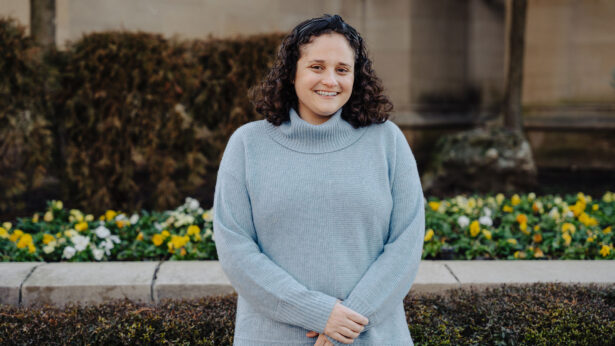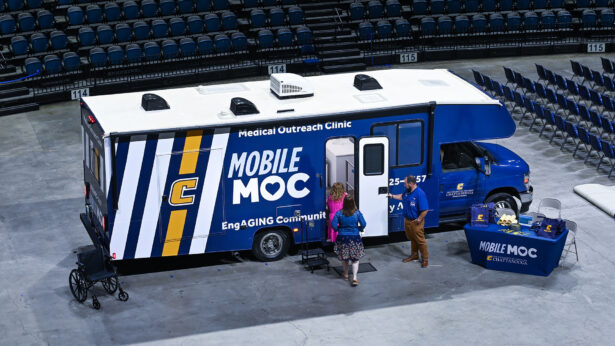Everyone wants their children to get a good education.
Parents of Tennessee 4-H’ers know that, through the program’s experiential learning, their children build a foundation for their future as well as for the future of their world. It’s stated right in the 4-H Pledge: “I pledge my head to clearer thinking; my heart to greater loyalty; my hands to larger service; and my health to better living, for my club, my community, my country and my world.”
The 4-H Youth Development Program is the outreach program for land-grant universities, Cooperative Extension Services and the United States Department of Agriculture. In Tennessee, UT and Tennessee State University Extension jointly manage clubs in every county in the state. 4-H youth learn life skills through hands-on activities in special-interest groups, after-school programs, camps and more. With more than 152,000 youth in grades four through 12 participating, the Tennessee 4-H program has more youth in organized 4-H clubs than any state in the nation. Collegiate chapters also exist.
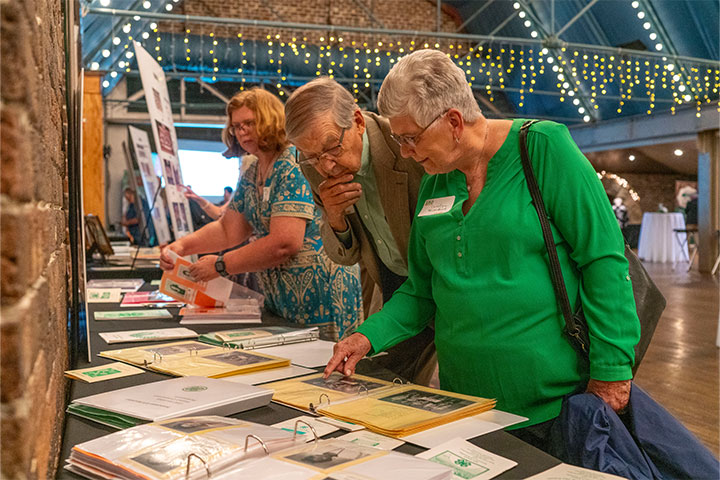
4-H’ers learn by doing. With a curriculum that melds individual discovery, group activities, leadership and community service, 4-H’ers learn what it takes to be successful as well as good citizens. Among the gems of the program is the annual Tennessee 4-H Roundup.
In the beginning, Tennessee 4-H Roundup was known as State 4-H Club Camp. It offered short courses in agriculture and home economics. The earliest club camp was held 100 years ago in July 1923. It attracted 196 delegates from 16 counties who arrived by automobile, train and streetcar. Many brought baskets full of treats for a huge dinner served picnic style on the university grounds. The 100th Tennessee 4-H Roundup welcomed 350 youth and adult volunteers back to Knoxville with events at the UT Institute of Agriculture, UT Knoxville and World’s Fair Park. Fittingly, it was held this year in the anniversary month of July.
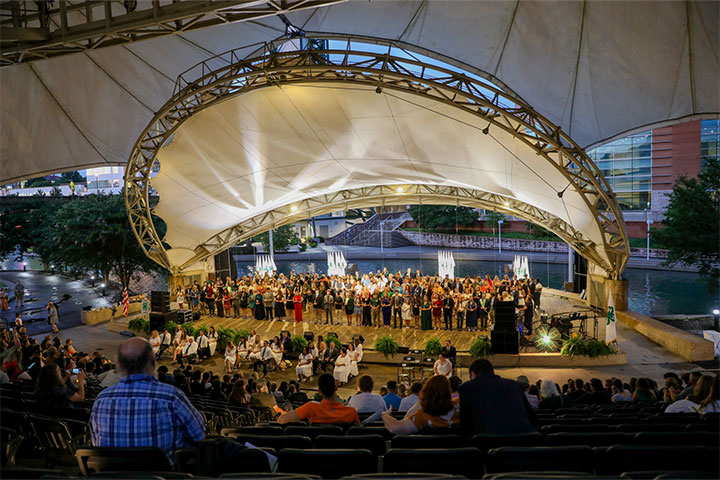
Roundup was discontinued for a short time during the Great Depression and during World War II when the UT campus served as a training base for the U.S. Army Air Corps. The event was renamed Tennessee 4-H Short Course in 1939, and the name was again changed to State 4-H Club Roundup a decade later. Roundup was held on the campus of UT Knoxville until 1979, when it moved to the UT Martin campus with a plan to take place on that campus every third year. About 38,000 Tennessee youth have participated in Roundup since.
Competition has been a part of Roundup since 1929, when districts presented demonstrations. In the 1950s, Roundup became the culmination of the year’s project work. 4-H’ers are encouraged to learn in depth about any of dozens of projects, and delegates from across the state present them at the state 4-H Roundup. A highlight of the event is when state 4-H project winners are announced at the annual awards banquet. Most win a trip to National 4-H Congress and the opportunity for a college scholarship, along with a silver bowl.
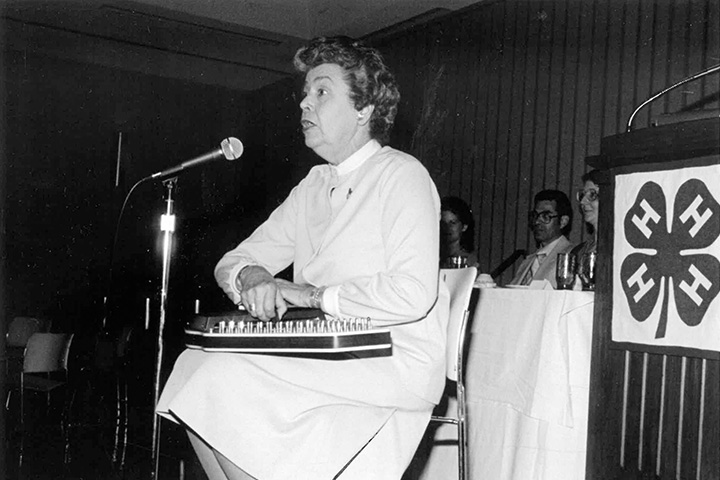
Civic and social opportunities are also a major part of Roundup programming. Former participants often cite the opportunity to make lasting friendships while participating in cultural activities as the most memorable part of the event.
Ellis Bacon (Knoxville ’69, ’73) attended Roundup from 1960 through 1967. He later was the first UTIA graduate student to be involved in professor emeritus Mike Pelton’s famed black-bear research.
“The 4-H friendships I formed, ones that were reinforced at Roundup and new ones I made through it, are like a second family to me,” he says. “I’m aging myself when I say it, but those friendships have lasted now for over a half century.”
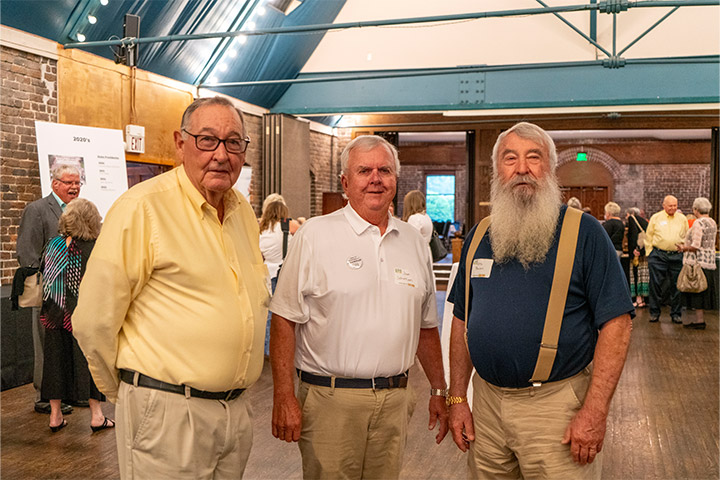
Hannah Wright (Knoxville ’14, ’16, ’22) won the Roundup public speaking competition in 2009 and 2010, and she was the State Project Winner for Beef in 2007 and 2009.
“Tennessee 4-H Roundup provided me with the opportunity to connect with people from across the state and forge friendships that would last a lifetime,” says the UTIA director of stakeholder and community engagement. “Those same friends I met at Roundup several years ago are now my colleagues in various commodity and agriculture organizations across the state and nation. They are relationships that will stand the test of time.”
During the history of Roundup, members have visited the Great Smoky Mountains National Park; watched productions at UT Knoxville’s Clarence Brown Theatre, the Cumberland County Playhouse and outdoor theaters in the area; seen a movie at Knoxville’s grand Tennessee Theatre; attended Dollywood in Pigeon Forge; and experienced the 1982 World’s Fair in Knoxville. When the event is held at UT Martin, Roundup participants have visited Reelfoot Lake, dipped their toes in the Mississippi River, and wandered through the Discovery Park of America Museum and Heritage Park in Union City.
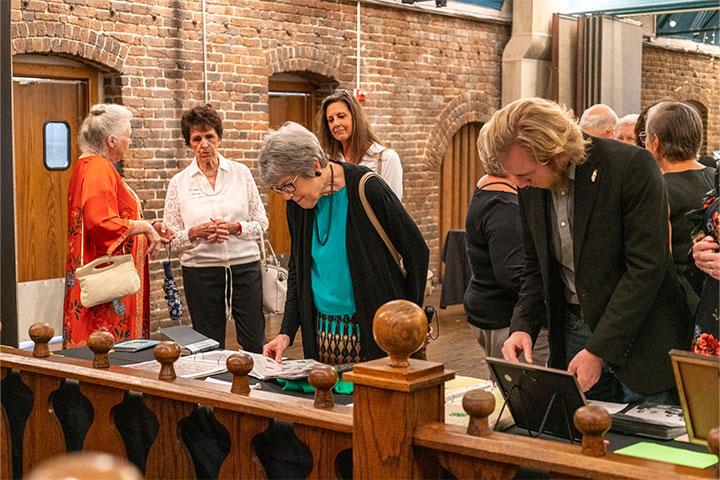
Since 1944, a state council of 4-H members has been elected at the annual event. The council plans the event and provides leadership for program activities. Many former state council members remain active as 4-H staff members, volunteer 4-H leaders, donors and advocates for the 4-H program.
What’s next for Tennessee 4-H and 4-H State Roundup? Another century of service, says Ashley Stokes, dean of UT Extension.
“Tennessee 4-H Roundup has provided life-changing experiences for tens of thousands of young people for the last century,” she says. “As the largest youth organization in Tennessee, our 4-H staff and volunteers work diligently to provide meaningful educational opportunities for youth from all walks of life and from all areas of our great state.”


